How to Be a More Positive Person
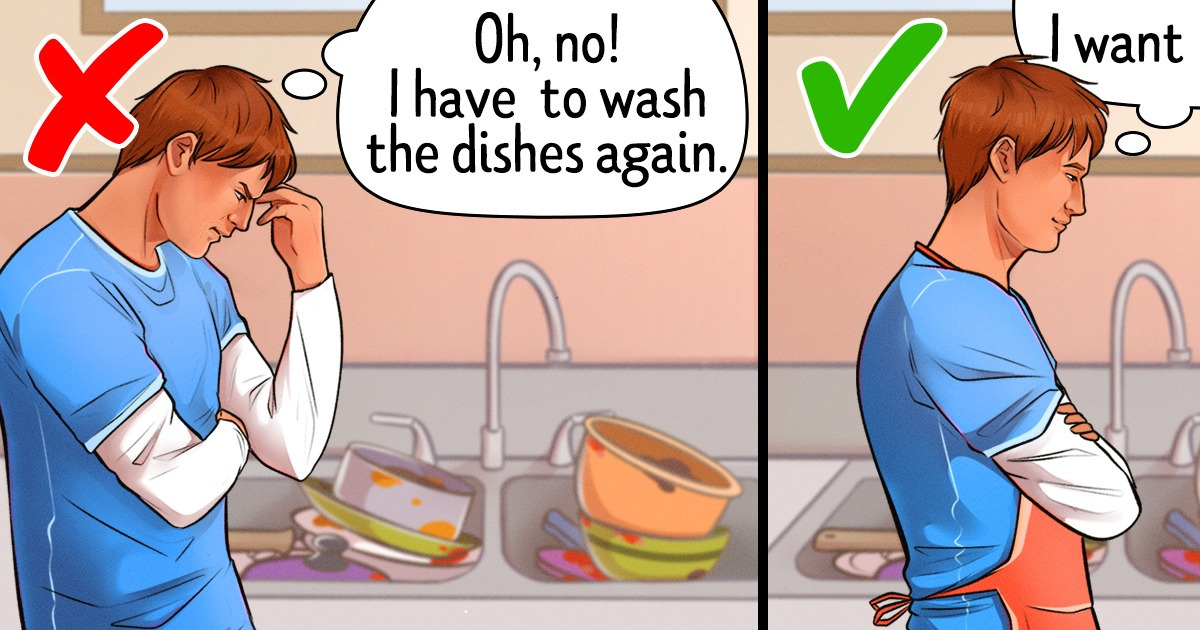
Positive thinking can bring a variety of benefits to your physical and mental health, including higher energy levels, faster recovery from illnesses, and better skills to handle stress. So, if you’d like to know how to put this attitude into practice, you’ve come to the right place.
5-Minute Crafts will show you some useful techniques to be a more positive person in your daily life.
❗ Important: This article has been created for informative purposes only and does not replace professional advice.
1. Identify the areas that you would like to change and use positive thoughts.
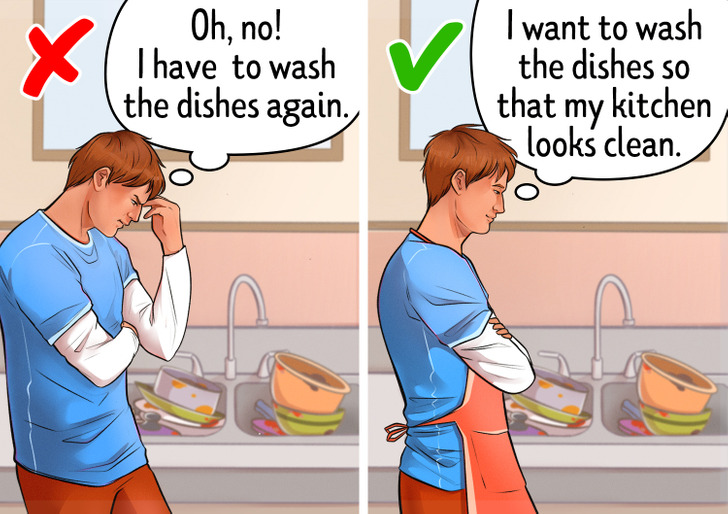
Think about your daily life, identify the areas in which you usually feel the most negative, and work on one aspect at a time. If it’s difficult for you to tell, ask a close friend, a trusted colleague, or your partner.
After that, replace those negative thoughts with positive ones in order to handle your stress. For example, instead of thinking that you “have” to do something, you can think that you “want” to do it. This very simple change may add a bit more positivity to what you do.
2. Start your day with positivity.

Create a routine that helps you start your day with positivity. For example, you can begin by telling yourself a positive affirmation; then listen to cheerful music, and finally, compliment someone or do a good deed to help you spread some positivity.
At the same time, meditation can be a good way to start your day on a meaningful and calming note. Even a short session of this activity may help you feel focused, refreshed, and purposeful.
💡 During your day, stop what you’re doing and analyze your thoughts for a few minutes. If you feel like you’re having mostly negative thoughts, try to twist them into positive ones.
3. Rethink your situation.
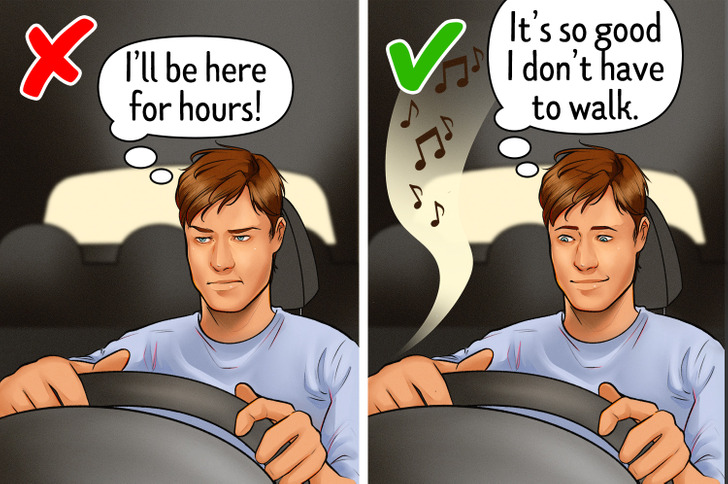
When something negative happens and you can’t do anything to change it, try to focus on the good aspects of the situation rather than getting upset about it, no matter how insignificant these things may seem. For instance, instead of getting stressed about slow traffic, think about how nice it is to have your own car and be able to listen to your favorite songs.
💡 In other words, acknowledge that good things can be present during difficult times.
4. Be grateful for the good things around you.
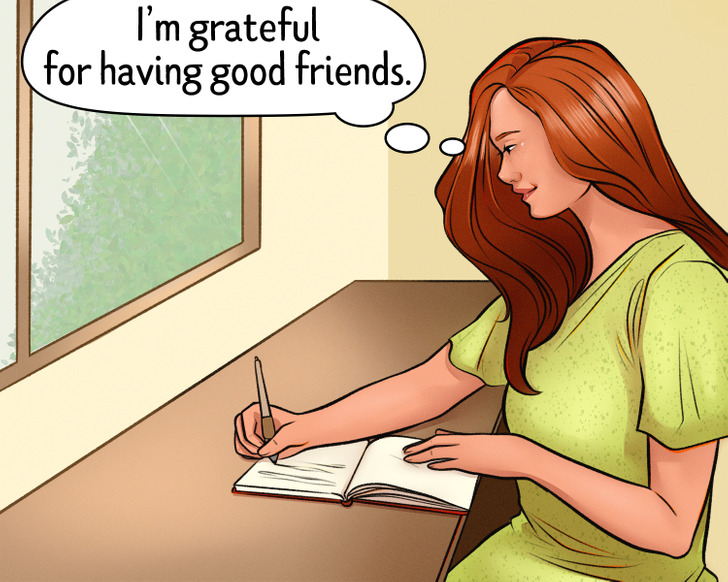
Reflect on situations, people, or things that somehow make you feel happiness or comfort, and try to show your gratitude for them at least once every day. This practice may help you boost your self-esteem, reduce stress, and encourage resilience during hard times.
Moreover, taking notes of the things you’re grateful for may help you improve your sense of well-being and optimism, and make you pay attention to the positive things in your life. Keep a gratitude journal and write in it every day, or make a list of all the things you feel grateful for on difficult days.
5. Don’t forget to smile, laugh, and be open to humor.
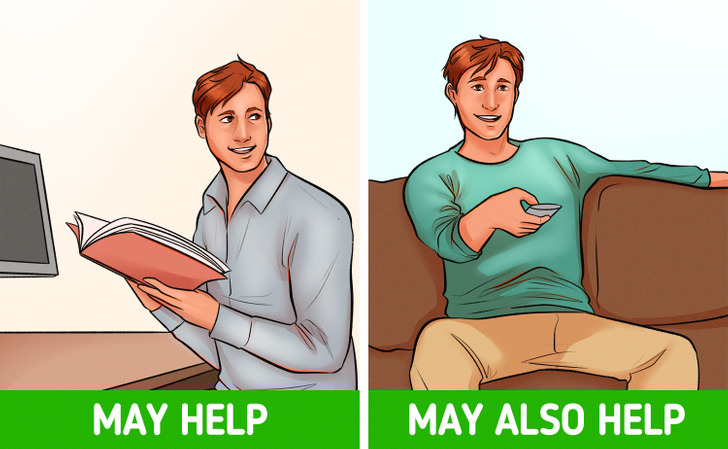
Smiling can be a very easy way to be more positive. Even if there’s nothing to smile about, this simple practice can immediately make a change in the way you feel. So, it’s advisable to try and smile more often, either at a co-worker in your office or while working on a difficult task at your desk.
At the same time, laughter can help you lower anxiety and stress levels. Moreover, it can improve your coping abilities, self-esteem, and temper. Therefore, make sure to open up to humor in all types of contexts and encourage yourself to laugh, especially during challenging times. Even if you have to force it, you may see that laughter improves your mood and makes things look a bit less hard.
💡 Build up more positivity in your daily life by having fun. You can do it by simply writing a list of the activities you enjoy and including them in your everyday routine.
6. Pay attention to your strengths.

Each day for a whole week, reflect on one of your strengths, such as leadership, creativity, kindness, or honesty. Then take notes on how you’re going to use that quality in a new way that day and do it. By the end of the week, this technique may help you boost feelings of happiness.
✅ Always remember to be encouraging and kind to yourself. If a negative thought pops up in your mind, think about it rationally and reply with sentences that express the good things about yourself.
7. Stay close to positive people.

Negative and positive people may have an effect on others. For example, negative people could make you feel more stressed and bring you down, while a positive person may cause the opposite to happen.
Therefore, it’s advisable to think about the people you spend your time with and try to surround yourself with those who are supportive of you, lift you up, provide helpful feedback and advice, and encourage you to see the good side of things.